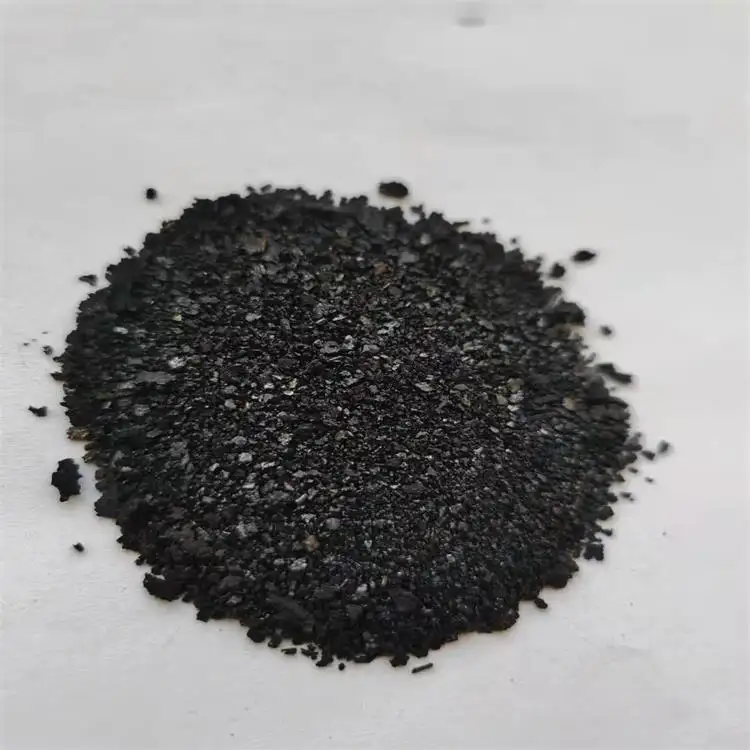blue dye natural
The Allure of Blue Dye Embracing Nature's Chromatic Gift
Throughout history, the color blue has signified more than just a captivating hue; it represents tranquility, depth, and a touch of mystery. Among the spectrum of colors, blue stands out as a remarkable staple in fashion, art, and culture. But when it comes to the sources of this mesmerizing color, few are as fascinating as natural blue dyes. Derived from plants and minerals, these dyes not only provide vivid coloration but also encapsulate the story of human innovation and the relationship we share with nature.
The Origins of Natural Blue Dyes
Natural blue dyes have been sourced from various plants and minerals for centuries. One of the most famous is indigo, a dye that comes from the leaves of the Indigofera plant. Indigo has been used globally, from the ancient civilizations of Egypt to the textile industries of Japan and India. The complex fermentation process to extract blue dye from these leaves has made indigo one of the most sought-after natural dyes throughout history.
In addition to indigo, other natural sources of blue dye include woad (Isatis tinctoria) and blue cornflowers (Centaurea cyanus). Woad, once highly esteemed in Europe before indigo's introduction, produces a range of beautiful blue shades. The blue cornflower, while not as prevalent, is celebrated for its delicate petals and the subtle blue dye extracted from them.
The Process of Dyeing with Natural Ingredients
The beauty of natural blue dye lies in its method of extraction and application. The process of dyeing with plants usually involves several steps harvesting, preparation, and dyeing. For instance, indigo dyeing involves fermenting the leaves to break down the glycoside indican, which is then oxidized to form the vibrant blue pigment.
This dyeing method not only preserves the environment but also encourages a deeper connection between the artisans and their craft. As each batch of dye is unique, artisans often describe their relationship with the materials as a dance—one that requires patience, skill, and a profound respect for nature.
blue dye natural

Environmental and Cultural Impact
In an era where synthetic dyes dominate the market, the resurgence of interest in natural blue dyes speaks volumes about sustainability and eco-friendliness. Natural dyes are biodegradable and often less harmful to the environment than their synthetic counterparts, which may contain toxic chemicals that can negatively impact ecosystems and human health.
Culturally, the use of natural blue dyes embodies a revival of traditional methods and craftsmanship. Many artisans and communities are returning to these age-old techniques, recognizing their cultural heritage and the stories embedded within them. This revival not only empowers local economies but also fosters a sense of pride and identity in the artisans, as they share their knowledge with a new generation.
Fashion’s Blue Revolution
The fashion industry is also experiencing a renaissance of natural blue dyes. As consumers become increasingly aware of the environmental impact of clothing production, there is a growing demand for sustainable and ethically sourced materials. This shift is prompting designers to embrace natural dyes, including vibrant blue hues derived from plants.
Fashion designers today are not just concerned about aesthetics but are also focused on the stories behind the materials they use. Collaborations with local artisans and the integration of natural dyeing methods into contemporary fashion design are becoming common trends. Brands are exploring the variety of shades and techniques available with natural dyes, giving rise to a unique fusion of old and new.
Conclusion
Natural blue dye represents the perfect blend of tradition, sustainability, and artistic expression. As we navigate an increasingly synthetic world, the allure of these organic pigments invites us to slow down and appreciate the beauty of nature. By embracing natural blue dyes, we honor our past, support our environment, and create a more vibrant, colorful future. Whether worn as a piece of clothing, displayed as art, or simply admired in nature, the magic of blue dye continues to inspire and captivate, reminding us of our connection to the earth and each other.
-
The Timeless Art of Denim Indigo Dye
NewsJul.01,2025
-
The Rise of Sulfur Dyed Denim
NewsJul.01,2025
-
The Rich Revival of the Best Indigo Dye
NewsJul.01,2025
-
The Enduring Strength of Sulphur Black
NewsJul.01,2025
-
The Ancient Art of Chinese Indigo Dye
NewsJul.01,2025
-
Industry Power of Indigo
NewsJul.01,2025
-
Black Sulfur is Leading the Next Wave
NewsJul.01,2025

Sulphur Black
1.Name: sulphur black; Sulfur Black; Sulphur Black 1;
2.Structure formula:
3.Molecule formula: C6H4N2O5
4.CAS No.: 1326-82-5
5.HS code: 32041911
6.Product specification:Appearance:black phosphorus flakes; black liquid

Bromo Indigo; Vat Bromo-Indigo; C.I.Vat Blue 5
1.Name: Bromo indigo; Vat bromo-indigo; C.I.Vat blue 5;
2.Structure formula:
3.Molecule formula: C16H6Br4N2O2
4.CAS No.: 2475-31-2
5.HS code: 3204151000 6.Major usage and instruction: Be mainly used to dye cotton fabrics.

Indigo Blue Vat Blue
1.Name: indigo blue,vat blue 1,
2.Structure formula:
3.Molecule formula: C16H10N2O2
4.. CAS No.: 482-89-3
5.Molecule weight: 262.62
6.HS code: 3204151000
7.Major usage and instruction: Be mainly used to dye cotton fabrics.

